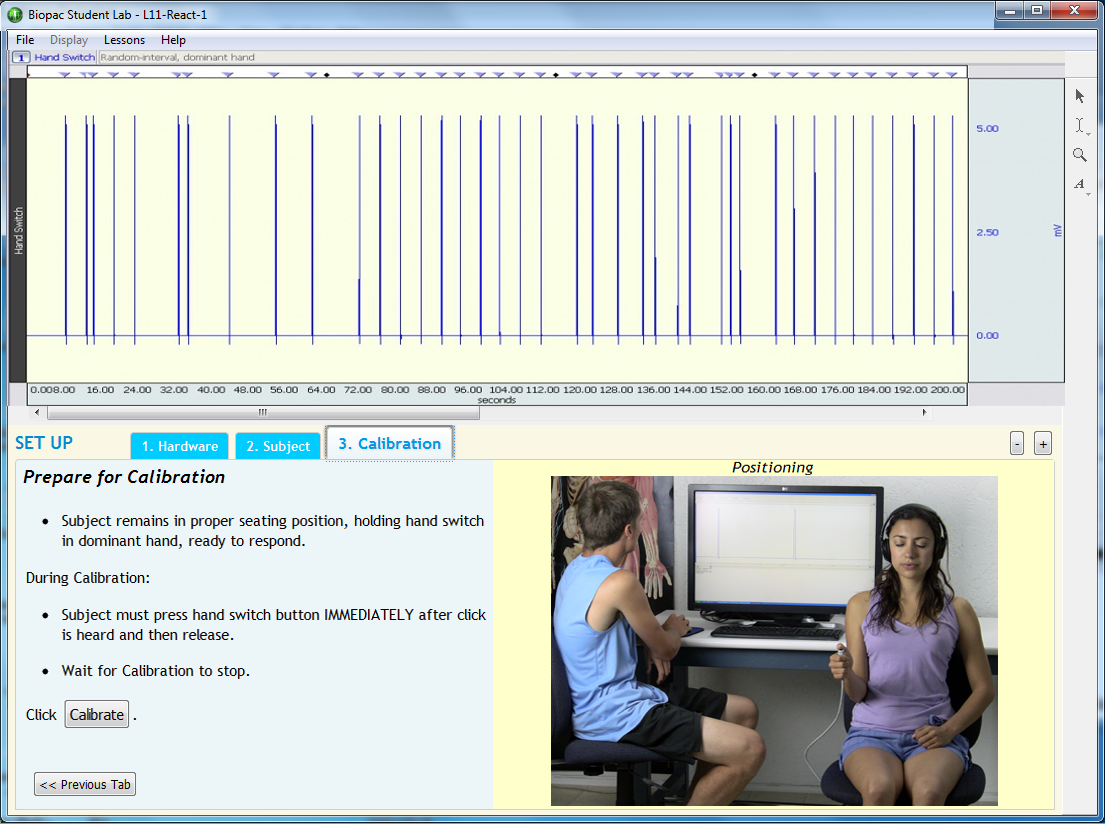L11 Reaction Time I – Auditory Stimulus

The lesson demonstrates the effect of learning and physiological processes on reaction times to an auditory stimulus.
Students hear two presentation schedules of clicks through a set of headphones. The Subject presses a pushbutton hand switch as quickly as possible after hearing the click.
Students can then perform a statistical analysis of the results including: group mean, variance and standard deviation.
Experimental Objectives
-
Observe the effects of learning and physiological processes on reaction times.
-
Compare reaction times with two presentation schedules: fixed intervals and random intervals.
-
Calculate statistics of group mean, variance, and standard deviation.
Tasks Performed by the Student
BSL Lessons are designed to allow at least four students to record and save data in a normal lab period (60-90 minutes). Typically, labs work most efficiently with three or more students working together at each BSL station.
- React to a schedule of fixed interval clicks.
- React to a schedule of random clicks.
Add active learning segments designed by students or instructor to expand this lesson.
Videos
BSL L11 Recording
BSL L11 Calibration
Biopac Student Lab Student Download
Lesson Hardware
This lesson requires a Biopac Student Lab (BSL) System and the following hardware. If your BSL System does not include all hardware items, expand your system by selecting required items below. For more details, review the Lesson: L# BSL Lessons - see the Lab Manual or launch BSL; A# and H# BSL PRO Lessons, click the PDF link above to review full setup, recording, and analysis procedures.
| Item | Name | Cart |
|---|---|---|
| SS10L | Push Button Hand Switch - MP3X/45 | Add to Cart |
| OUT1A | Headphones to MP36/MP36R output port | Add to Cart |
Stay Connected